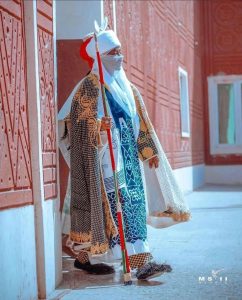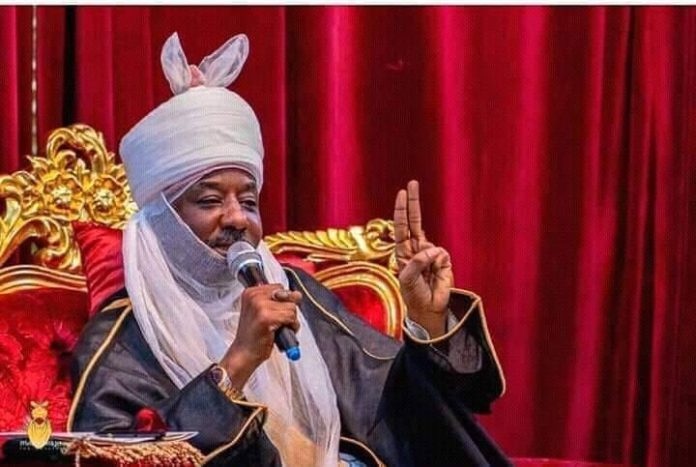In a pointed critique of Nigeria’s leadership and economic policies, His Royal Majesty Sanusi Lamido Sanusi, former Emir of Kano and ex-Governor of the Central Bank of Nigeria, has expressed deep concerns over the country’s approach to development, particularly in the context of foreign loans and infrastructure projects. Speaking at a recent forum, Sanusi highlighted what he sees as the fundamental flaws in the economic strategies being pursued by several state governments, particularly in northern Nigeria.
Sanusi’s remarks come at a time when many Nigerian governors are increasingly turning to foreign loans, particularly from China, to fund large infrastructure projects. However, Sanusi questioned the rationale behind these investments, particularly in the context of northern states like Kano and Katsina. He pointed out that while governors often secure massive loans, such as the $1.8 billion to build light rail systems, the expected returns on these investments are questionable given the current state of industrial development in the region.
“Governors go to China on tours, and what do they come back with? MoUs on debt. China will lend you $1.8 billion to build light rail. Your citizens will ride on the train, but in a place like northern Nigeria, in states like Kano or Katsina, where are the people going to? They’re not heading to industrial estates to work, to well-equipped schools, or to modern mechanized farms,” Sanusi remarked.
He expressed concern that the infrastructure projects being financed by these loans do not align with the actual needs and economic activities of the population. In northern Nigeria, where industrialization is minimal and employment opportunities are scarce, Sanusi questioned the logic of investing in transportation infrastructure that primarily serves non-productive purposes. “You borrow money from China to invest in trains so your citizens can ride on them to attend weddings, parties, and naming ceremonies. There are no factories to work in. So, where or how will you get returns on this investment? How will you pay back the loans?” he asked rhetorically.
Sanusi’s critique underscores a broader issue of leadership and economic planning in Nigeria. He argued that the current crop of leaders often lacks the vision and competence required to make decisions that truly benefit the populace. According to Sanusi, this disconnect between leadership decisions and the actual developmental needs of the country is at the root of many of Nigeria’s economic challenges.
“We have a leadership problem. We need to choose leaders who are competent to do the job, whether they come from our community or not,” Sanusi asserted. His comments reflect a growing frustration among Nigerians with the status quo, particularly the tendency of leaders to prioritize projects that do not necessarily translate into economic growth or improved living standards for the majority of citizens.
Sanusi’s remarks are likely to resonate with many Nigerians who have long criticized the government’s penchant for accruing foreign debt without corresponding investments in sectors that would generate the necessary revenue to service these loans. The former Emir’s call for a more pragmatic and competence-driven approach to leadership may also fuel ongoing debates about the future direction of Nigeria’s economic policy and the role of foreign loans in achieving sustainable development.
As Nigeria continues to grapple with economic challenges, including high unemployment rates, low industrial output, and mounting foreign debt, Sanusi’s critique serves as a reminder of the need for more strategic and informed decision-making at the highest levels of government. His call for competent leadership echoes the sentiments of many who believe that only through visionary and effective governance can Nigeria realize its full potential and ensure that investments in infrastructure and other sectors yield meaningful returns for its citizens.




